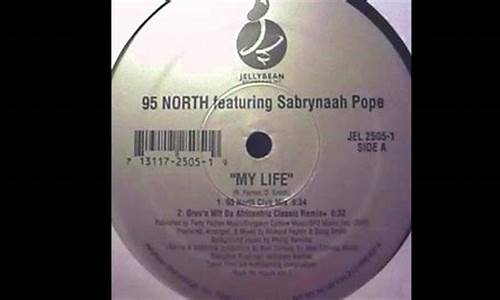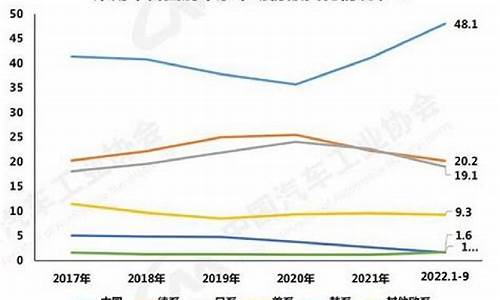my life_my life什么意思
在接下来的时间里,我将为大家提供一些关于my life的信息,并尽力回答大家的问题。让我们开始探讨一下my life的话题吧。
1.enjoymylife是什么意思
2.onmylife和inmylife的区别
3.i have not lost my life翻译
4.my life for me 什么意思
5.克林顿《My Life》英文原版
6.我会爱你一生一世用英语怎么说

enjoymylife是什么意思
enjoy my life
享受我的生活
enjoy
英[?n?d?]
美[?n?d?]
vt. 喜欢; 欣赏; 享有,享受; 使过得快活;
vi. 使过得快活;
[例句]I am glad you enjoy it.
很高兴你喜欢这餐饭。
onmylife和inmylife的区别
my life, my way. 我的人生,我的路.
例句:
1.
Let me handle my life, my way.
让我自己把握我的人生,我的路.
i have not lost my life翻译
In my life 是在我的生命中的意思,也就是表示的一般都是时间,也就是某个人在你的生命中,或者是某件事在你的生命中的某一件事之类的。
重点是on my life ,是整个我一生的意思,是放在你的一生来讲的,而不是你生命中的某个时间。
I worked so hard on my life, so hard.我一生如此努力,如此努力。
my life for me 什么意思
i have not lost my life翻译:我没有失去我的生命。双语例句
1.When I first arrived on this island,I hadnothing
当我第一次到达这个岛屿的时候,我一无所有。
2.But I’ve found the ship and made a small boat.
但是我发现了这艘大船,然后做了艘小船。
3.I’ve brought back many things Ican use---food and drinkstoolsknives andguns
我已经带回来了许多我能够用到的东西---食物,饮料,工具,刀,和枪。
4.Although I have lost everything,I have not lost mylife
尽管我已经失去了所有,但是我没有失去我的生命。
5.So I will not give up and I will wait for anothership.
因此我将不会放弃,我会永远等待另外一艘船。
6.I have already cut down trees and builta house.
我已经砍到了树,造了房子。
7.I go out with my gun almost every day to kill animals and birds for food.
我每天出去几乎都带着我的枪去打动物和鸟来作为食物。
8.I’m even learning to grow fruit andvegetables.
我甚至学习去种水果和蔬菜。
9.Afew weeks ago, I found the marks of another man’s feet on thesand.
一个星期以前,我发现了另外一个人在沙地上的足迹。
10.Who else is on the island?
还有谁在这个岛屿上呢?
11.How long have they been here?
他们在这里有多久了?
12.Not long after that, I saw some cannibals trying to kill two men from a brokenship
在那不久之后,我看到两个食人肉者正在试图杀掉来自于一艘破船的两个人。
13.One of them died but the other ran towards myhouse.
他们其中的一个死了,另外一个朝我的房子这边跑来。
克林顿《My Life》英文原版
my
life
for
me
我的生活。
例句:
1.And
one
is
going
to
haunt
me
for
the
rest
of
my
life.
这要困扰我一辈子的
2.My
life
is
like
a
blue
sky,
anything
is
possible
for
me
to
complete,
so
I'll
fill
color.
我的人生就像蓝天,什么都可能发生,由我来完成、由我来填充色彩。
我会爱你一生一世用英语怎么说
[1]
mon difficulties. They concern, thank God, only material things. Values have shrunken to fantastic levels; taxes have risen; our ability to pay has fallen; government of all kinds is faced by serious curtailment of income; the means of exchange are frozen in the currents of trade; the withered leaves of industrial enterprise lie on every side; farmers find no markets for their produce; the savings of many years in thousands of families are gone.
More important, a host of unemployed citizens face the grim problem of existence, and an equally great number toil with little return. Only a foolish optimist can deny the dark realities of the moment.
Yet our distress comes from no failure of substance. We are stricken by no plague of locusts. Compared with the perils which our forefathers conquered because they believed and were not afraid, we have still much to be thankful for. Nature still offers her bounty and human efforts have multiplied it. Plenty is at our doorstep, but a generous use of it languishes in the very sight of the supply. Primarily this is because the rulers of the exchange of mankind's goods have failed, through their own stubbornness and their own incompetence, have admitted their failure, and abdicated. Practices of the unscrupulous money changers stand indicted in the court of public opinion, rejected by the hearts and minds of men.
True they have tried, but their efforts have been cast in the pattern of an outworn tradition. Faced by failure of credit they have proposed only the lending of more money. Stripped of the lure of profit by which to induce our people to follow their false leadership, they have resorted to exhortations, pleading tearfully for restored confidence. They know only the rules of a generation of self-seekers. They have no vision, and when there is no vision the people perish.
The money changers have fled from their high seats in the temple of our civilization. We may now restore that temple to the ancient truths. The measure of the restoration lies in the extent to which we apply social values more noble than mere monetary profit.
Happiness lies not in the mere possession of money; it lies in the joy of achievement, in the thrill of creative effort. The joy and moral stimulation of work no longer must be forgotten in the mad chase of evanescent profits. These dark days will be worth all they cost us if they teach us that our true destiny is not to be ministered unto but to minister to ourselves and to our fellow men.
Recognition of the falsity of material wealth as the standard of success goes hand in hand with the abandonment of the false belief that public office and high political position are to be valued only by the standards of pride of place and personal profit; and there must be an end to a conduct in banking and in business which too often has given to a sacred trust the likeness of callous and selfish wrongdoing. Small wonder that confidence languishes, for it thrives only on honesty, on honor, on the sacredness of obligations, on faithful protection, on unselfish performance; without them it cannot live.
Restoration calls, however, not for changes in ethics alone. This Nation asks for action, and action now.
Our greatest primary task is to put people to work. This is no unsolvable problem if we face it wisely and courageously. It can be accomplished in part by direct recruiting by the Government itself, treating the task as we would treat the emergency of a war, but at the same time, through this employment, accomplishing greatly needed projects to stimulate and reorganize the use of our natural resources.
Hand in hand with this we must frankly recognize the overbalance of population in our industrial centers and, by engaging on a national scale in a redistribution, endeavor to provide a better use of the land for those best fitted for the land. The task can be helped by definite efforts to raise the values of agricultural products and with this the power to purchase the output of our cities. It can be helped by preventing realistically the tragedy of the growing loss through foreclosure of our small homes and our farms. It can be helped by insistence that the Federal, State, and local governments act forthwith on the demand that their cost be drastically reduced. It can be helped by the unifying of relief activities which today are often scattered, uneconomical, and unequal. It can be helped by national planning for and supervision of all forms of transportation and of communications and other utilities which have a definitely public character. There are many ways in which it can be helped, but it can never be helped merely by talking about it. We must act and act quickly.
Finally, in our progress toward a resumption of work we require two safeguards against a return of the evils of the old order; there must be a strict supervision of all banking and credits and investments; there must be an end to speculation with other people's money, and there must be provision for an adequate but sound currency.
There are the lines of attack. I shall presently urge upon a new Congress in special session detailed measures for their fulfillment, and I shall seek the immediate assistance of the several States.
Through this program of action we address ourselves to putting our own national house in order and making income balance outgo. Our international trade relations, though vastly important, are in point of time and necessity secondary to the establishment of a sound national economy. I favor as a practical policy the putting of first things first. I shall spare no effort to restore world trade by international economic readjustment, but the emergency at home cannot wait on that accomplishment.
The basic thought that guides these specific means of national recovery is not narrowly nationalistic. It is the insistence, as a first consideration, upon the interdependence of the various elements in all parts of the United States--a recognition of the old and permanently important manifestation of the American spirit of the pioneer. It is the way to recovery. It is the immediate way. It is the strongest assurance that the recovery will endure.
In the field of world policy I would dedicate this Nation to the policy of the good neighbor--the neighbor who resolutely respects himself and, because he does so, respects the rights of others-- the neighbor who respects his obligations and respects the sanctity of his agreements in and with a world of neighbors.
If I read the temper of our people correctly, we now realize as we have never realized before our interdependence on each other; that we can not merely take but we must give as well; that if we are to go forward, we must move as a trained and loyal army willing to sacrifice for the good of a common discipline, because without such discipline no progress is made, no leadership becomes effective. We are, I know, ready and willing to submit our lives and property to such discipline, because it makes possible a leadership which aims at a larger good. This I propose to offer, pledging that the larger purposes will bind upon us all as a sacred obligation with a unity of duty hitherto evoked only in time of armed strife.
With this pledge taken, I assume unhesitatingly the leadership of this great army of our people dedicated to a disciplined attack upon our common problems.
Action in this image and to this end is feasible under the form of government which we have inherited from our ancestors. Our Constitution is so simple and practical that it is possible always to meet extraordinary needs by changes in emphasis and arrangement without loss of essential form. That is why our constitutional system has proved itself the most superbly enduring political mechanism the modern world has produced. It has met every stress of vast expansion of territory, of foreign wars, of bitter internal strife, of world relations.
It is to be hoped that the normal balance of executive and legislative authority may be wholly adequate to meet the unprecedented task before us. But it may be that an unprecedented demand and need for undelayed action may call for temporary departure from that normal balance of public procedure.
I am prepared under my constitutional duty to recommend the measures that a stricken nation in the midst of a stricken world may require. These measures, or such other measures as the Congress may build out of its experience and wisdom, I shall seek, within my constitutional authority, to bring to speedy adoption.
But in the event that the Congress shall fail to take one of these two courses, and in the event that the national emergency is still critical, I shall not evade the clear course of duty that will then confront me. I shall ask the Congress for the one remaining instrument to meet the crisis--broad Executive power to wage a war against the emergency, as great as the power that would be given to me if we were in fact invaded by a foreign foe.
For the trust reposed in me I will return the courage and the devotion that befit the time. I can do no less.
We face the arduous days that lie before us in the warm courage of the national unity; with the clear consciousness of seeking old and precious moral values; with the clean satisfaction that comes from the stem performance of duty by old and young alike. We aim at the assurance of a rounded and permanent national life.
We do not distrust the future of essential democracy. The people of the United States have not failed. In their need they have registered a mandate that they want direct, vigorous action. They have asked for discipline and direction under leadership. They have made me the present instrument of their wishes. In the spirit of the gift I take it.
In this dedication of a Nation we humbly ask the blessing of God. May He protect each and every one of us. May He guide me in the days to come.
罗斯福第二次
Second Inaugural Address of Franklin D. Roosevelt
WEDNESDAY, JANUARY 20, 1937
When four years ago we met to inaugurate a President, the Republic, single-minded in anxiety, stood in spirit here. We dedicated ourselves to the fulfillment of a vision--to speed the time when there would be for all the people that security and peace essential to the pursuit of happiness. We of the Republic pledged ourselves to drive from the temple of our ancient faith those who had profaned it; to end by action, tireless and unafraid, the stagnation and despair of that day. We did those first things first.
Our covenant with ourselves did not stop there. Instinctively we recognized a deeper need--the need to find through government the instrument of our united purpose to solve for the individual the ever-rising problems of a complex civilization. Repeated attempts at their solution without the aid of government had left us baffled and bewildered. For, without that aid, we had been unable to create those moral controls over the services of science which are necessary to make science a useful servant instead of a ruthless master of mankind. To do this we knew that we must find practical controls over blind economic forces and blindly selfish men.
We of the Republic sensed the truth that democratic government has innate capacity to protect its people against disasters once considered inevitable, to solve problems once considered unsolvable. We would not admit that we could not find a way to master economic epidemics just as, after centuries of fatalistic suffering, we had found a way to master epidemics of disease. We refused to leave the problems of our common welfare to be solved by the winds of chance and the hurricanes of disaster.
In this we Americans were discovering no wholly new truth; we were writing a new chapter in our book of self-government.
This year marks the one hundred and fiftieth anniversary of the Constitutional Convention which made us a nation. At that Convention our forefathers found the way out of the chaos which followed the Revolutionary War; they created a strong government with powers of united action sufficient then and now to solve problems utterly beyond individual or local solution. A century and a half ago they established the Federal Government in order to promote the general welfare and secure the blessings of liberty to the American people.
Today we invoke those same powers of government to achieve the same objectives.
Four years of new experience have not belied our historic instinct. They hold out the clear hope that government within communities, government within the separate States, and government of the United States can do the things the times require, without yielding its democracy. Our tasks in the last four years did not force democracy to take a holiday.
Nearly all of us recognize that as intricacies of human relationships increase, so power to govern them also must increase--power to stop evil; power to do good. The essential democracy of our Nation and the safety of our people depend not upon the absence of power, but upon lodging it with those whom the people can change or continue at stated intervals through an honest and free system of elections. The Constitution of 1787 did not make our democracy impotent.
In fact, in these last four years, we have made the exercise of all power more democratic; for we have begun to bring private autocratic powers into their proper subordination to the public's government. The legend that they were invincible--above and beyond the processes of a democracy--has been shattered. They have been challenged and beaten.
Our progress out of the depression is obvious. But that is not all that you and I mean by the new order of things. Our pledge was not merely to do a patchwork job with secondhand materials. By using the new materials of social justice we have undertaken to erect on the old foundations a more enduring structure for the better use of future generations.
In that purpose we have been helped by achievements of mind and spirit. Old truths have been relearned; untruths have been unlearned. We have always known that heedless self-interest was bad morals; we know now that it is bad economics. Out of the collapse of a prosperity whose builders boasted their practicality has come the conviction that in the long run economic morality pays. We are beginning to wipe out the line that divides the practical from the ideal; and in so doing we are fashioning an instrument of unimagined power for the establishment of a morally better world.
This new understanding undermines the old admiration of worldly success as such. We are beginning to abandon our tolerance of the abuse of power by those who betray for profit the elementary decencies of life.
In this process evil things formerly accepted will not be so easily condoned. Hard-headedness will not so easily excuse hardheartedness. We are moving toward an era of good feeling. But we realize that there can be no era of good feeling save among men of good will.
For these reasons I am justified in believing that the greatest change we have witnessed has been the change in the moral climate of America.
Among men of good will, science and democracy together offer an ever-richer life and ever-larger satisfaction to the individual. With this change in our moral climate and our rediscovered ability to improve our economic order, we have set our feet upon the road of enduring progress.
Shall we pause now and turn our back upon the road that lies ahead? Shall we call this the promised land? Or, shall we continue on our way? For "each age is a dream that is dying, or one that is coming to birth."
Many voices are heard as we face a great decision. Comfort says, "Tarry a while." Opportunism says, "This is a good spot." Timidity asks, "How difficult is the road ahead?"
True, we have come far from the days of stagnation and despair. Vitality has been preserved. Courage and confidence have been restored. Mental and moral horizons have been extended.
But our present gains were won under the pressure of more than ordinary circumstances. Advance became imperative under the goad of fear and suffering. The times were on the side of progress.
To hold to progress today, however, is more difficult. Dulled conscience, irresponsibility, and ruthless self-interest already reappear. Such symptoms of prosperity may become portents of disaster! Prosperity already tests the persistence of our progressive purpose.
Let us ask again: Have we reached the goal of our vision of that fourth day of March 1933? Have we found our happy valley?
I see a great nation, upon a great continent, blessed with a great wealth of natural resources. Its hundred and thirty million people are at peace among themselves; they are making their country a good neighbor among the nations. I see a United States which can demonstrate that, under democratic methods of government, national wealth can be translated into a spreading volume of human comforts hitherto unknown, and the lowest standard of living can be raised far above the level of mere subsistence.
But here is the challenge to our democracy: In this nation I see tens of millions of its citizens--a substantial part of its whole population--who at this very moment are denied the greater part of what the very lowest standards of today call the necessities of life.
I see millions of families trying to live on incomes so meager that the pall of family disaster hangs over them day by day.
I see millions whose daily lives in city and on farm continue under conditions labeled indecent by a so-called polite society half a century ago.
I see millions denied education, recreation, and the opportunity to better their lot and the lot of their children.
I see millions lacking the means to buy the products of farm and factory and by their poverty denying work and productiveness to many other millions.
I see one-third of a nation ill-housed, ill-clad, ill-nourished.
It is not in despair that I paint you that picture. I paint it for you in hope--because the Nation, seeing and understanding the injustice in it, proposes to paint it out. We are determined to make every American citizen the subje
1. I will always love you. 我会永远爱你。
这句话是**《保镖》的主题曲,很多人都喜欢。虽然没有说到“一生一世”,但这个always就已经表达了相似的含义。
2. I will love you till the end of my life. 我会爱你一辈子。
这句话如果换成新生代小朋友的话,就是“我爱你爱到死。“
3. I love you forever and ever and ever... 我永远爱你。
Forever就是”永远“的意思,后面再连加两个ever,就代表了”比永远还要远“的意境。
4. I want to spend my lifetime loving you. 我要用一生的时间来爱你。
这句话好像也是某部**主题曲,没记错的话应该是《佐罗的面具》里面的。这应该是目前为止表达意思最具体的一句表白了。
5. I will love you all my life. 我会爱你一生一世。
注意哦,这里是all my life而不是throughout my life。后者多表示”自始至终“的含义,而相爱的两个人一般都不大可能一出生就遇到并爱上对方,所以还是笼统一点的all比较合适。
好了,今天关于“my life”的话题就到这里了。希望大家能够通过我的讲解对“my life”有更全面、深入的了解,并且能够在今后的生活中更好地运用所学知识。
声明:本站所有文章资源内容,如无特殊说明或标注,均为采集网络资源。如若本站内容侵犯了原著者的合法权益,可联系本站删除。












